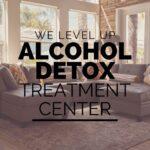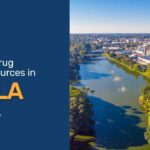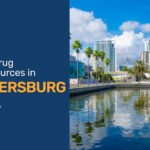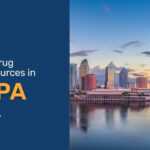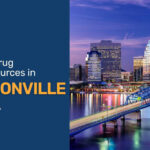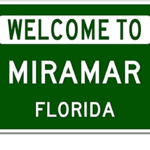Guide to Alcohol Detox Treatment. Alcohol Detox Timeline. Alcohol Detox Symptoms. How Long Does it Take to Detox from Alcohol?
Alcohol use disorder is a life-threatening condition that can lead to an irreversible health crisis and may even be fatal. Immediate professional help is the only way to avoid harm to yourself or a loved one. A person struggling with moderate to severe alcohol addiction has a significant probability of developing withdrawal symptoms and could benefit from the help of a detox program. Continue to read more about the benefits and timeline of alcohol detox.
By We Level Up | Editor Yamilla Francese | Clinically Reviewed By Lauren Barry, LMFT, MCAP, QS, Director of Quality Assurance | Medically Reviewed by Ali Nikbakht, PsyD | Editorial Policy | Research Policy | Last Updated: October 18, 2023
Alcohol addiction is a severe condition affecting millions of people. It causes physical and mental health problems, including liver damage, heart disease, and depression. Fortunately, effective treatments are available for alcohol addiction, and one of the most critical steps is alcohol detox. Detox refers to the process of removing alcohol from your body, and it is the first step in the journey to recovery. We’ll give you a complete guide to alcoholic detoxification treatment, including the alcohol detox timeline and symptoms, accredited alcoholism detox programs, and how long it takes to detox from alcohol.
Alcohol Detox
Making the hard decision to break free from alcoholism can be formidable. Still, alcoholism detoxification is a crucial first step in sobriety. Taking part in a professional detox for alcohol, patients can seek to reduce daunting withdrawal symptoms.
Significance of Detox from Alcohol
Alcohol detox is the first step to removing alcohol from the body after heavy drinking. Detox for alcohol can be done in an inpatient or residential setting and typically involves a combination of medications, therapy, and support to help manage symptoms of alcohol withdrawal and prevent alcohol addiction relapse.
Detox alcoholic programs can consist of medical detox to at-home detox treatment plans.
Importance of detox alcoholic programs
Why Alcohol Detox is Necessary?
Alcohol detox is a critical step in the process of quitting alcohol. When you consume alcohol regularly, your body becomes dependent on it. Your brain begins to adapt to the presence of alcohol and starts to function differently. If you suddenly stop drinking alcohol, your body and brain will react, and you may experience a range of withdrawal symptoms. For this reason, detox from alcohol should always be done under the supervision of a medical professional. Withdrawal symptoms can include:
- Shaking
- Nausea and vomiting
- Sweating
- Anxiety
- Insomnia
- Hallucinations
- Seizures
Detox for Alcohol Program
Detox for alcohol programs is an essential aspect of alcohol addiction treatment. Accredited alcohol detox programs offer medical supervision, medication, and support for those undergoing detox. With a detox program, you will have a safe and supportive environment to detox from alcohol. You will also receive medication to manage withdrawal symptoms, making the process more comfortable.
Detox for alcohol programs is an essential aspect of alcohol addiction treatment. It is essential to seek accredited alcohol detox centers for a safe and effective detox process. The alcohol detox timeline can be a week or two, with symptoms that vary widely from individual to individual. Alcohol detox is the first step in a long journey to recovery, and it is essential to remember that seeking help from medical professionals is crucial for a safe and successful recovery.
Type of detox alcoholic programs
Guide to Detox Alcoholic Programs
Alcohol addiction can be a devastating condition that adversely affects every aspect of one’s life. Withdrawal symptoms when trying to quit drinking can be severe, and many individuals find it challenging to break free from addiction. Detoxing from alcohol is essential to regaining control over one’s life. In this blog post, we’ll explore the various methods of detoxing from alcohol and offer practical advice for those starting on the journey to recovery.
- Medical Detox: Medical detox is a highly structured process in an inpatient or outpatient facility under the supervision of a medical professional. During this time, the individual may receive medication to manage withdrawal symptoms, such as anxiety, hallucinations, and seizures. Medical detox is the safest way to detox from alcohol and is recommended for those with severe addiction.
2. Holistic Detox: Holistic detox focuses on a natural and holistic approach to detoxing from alcohol. The program may include meditation, yoga, massage therapy, and acupuncture. This approach aims to heal the body, mind, and spirit to promote recovery.
3. Outpatient Detox: Outpatient detox allows the individual to detox from alcohol while remaining at home. This method is generally recommended for individuals with mild to moderate addiction. However, it’s crucial to have a support system to provide accountability and emotional support during the process.
4. At-Home Detox: At-home alcohol detox is a do-it-yourself approach to detoxing from alcohol. Although it’s not recommended, some individuals attempt detoxing independently without medical supervision. The risks of this method include severe withdrawal symptoms, relapse, and potential medical emergencies.
5. Nutritional Detox: Nutritional detox focuses on a diet rich in nutrients that can help support the body in healing during alcohol detox. A healthy diet may include lean proteins, healthy carbohydrates, and fruits and vegetables. Nutritional supplements may also be used to support overall health and wellness.
Detoxing from alcohol is a challenging process, but it’s an essential step towards regaining control over one’s life. With the right approach, detoxification can be a safe and manageable experience. Medical detox is the safest method recommended for individuals with severe addiction. Other methods, such as holistic, outpatient, and nutritional detox, may also be effective for individuals with milder addiction. A support system is crucial to emotional support and accountability, whether at home or through a treatment facility. Remember, recovery is possible, and taking the first step towards detoxing from alcohol is a significant achievement.
Guide to Alcohol Detox Timeline
The alcohol detox timeline can vary depending on the severity of your addiction and other factors. Generally, mild to moderate alcohol addiction may take a week to complete detox. Whereas more severe addiction may take about two weeks to complete the first detox stage. Some symptoms may persist for longer, but most will subside within a week or two. It is essential to note that the alcohol detox timeline can vary widely for each individual, and seeking treatment for alcohol detox is crucial.
Detox timeline alcohol treatment
How Long Does it Take to Detox from Alcohol?
Alcoholism is a severe problem that can lead to numerous health complications. Detoxing from alcohol is necessary for those who want to quit drinking once and for all. However, the detoxing from alcohol timeline can be challenging, and knowing what to expect is vital throughout the journey.
Alcoholism recovery timeline
The length of time it takes to detox from alcohol varies depending on the severity of the addiction. Typically, it takes seven to fourteen days for the first detox stage. But remember that a full recovery from alcohol addiction will take longer. Alcohol detox is the first step in a more extended process, including therapy, support groups, and medication management.
How many days to detox from alcohol?
The amount of time it takes to detox from alcohol varies from person to person, depending on several factors, including:
- How much alcohol you drink
- How long you have been drinking
- Your age
- Your physical health
- Your mental health
- Your genetics
Most people will generally experience the most severe withdrawal symptoms within 24-72 hours of their last drink. However, some people may experience withdrawal symptoms for several weeks or months. Typical detoxing from alcohol timeline ranges from day one to one to two weeks but can extend for months.
How many days for alcohol detox along with Alcohol detox symptoms timeline
Day One to Three timeline of alcohol detox: Withdrawal Symptoms Kick In
The first step in alcohol detox is the withdrawal process, which typically begins within a few hours after your last drink. The first three days can be the most challenging, and you may experience various withdrawal symptoms such as nausea, tremors, anxiety, and in severe cases, seizures. It’s essential to have medical supervision during this stage to stay safe and get the necessary care and support to manage your symptoms.
Day Four to Seven detox alcohol timeline: Symptoms Peak
Days four to seven are often considered the most challenging and peak period during alcohol detox. You may experience the worst withdrawal symptoms, such as hallucinations, intense cravings, and seizures. Medical professionals may prescribe medications during this period to help manage your symptoms, stabilize your mood, and prevent seizures.
Week Two detox timeline alcohol treatment: Symptoms Begin To Subside
After getting past the first week, withdrawal symptoms will begin to subside. You may still feel some physical symptoms, such as insomnia, mild tremors, and poor concentration. This stage is usually called the post-acute withdrawal symptom (PAWS) phase, which typically lasts for around six months, depending on how long you have been drinking or how much you drank. During this stage, seeking therapy, counseling, or other support groups is essential to help you mentally overcome the addiction.
Month One to Three alcoholism withdrawal timeline: Mental Clarity And Physical Recovery
You may notice a significant difference in your mental and physical well-being one to three months into your recovery. Often referred to as the Honeymoon stage, you may experience mental clarity, better sleep, energy, and motivation. Your body also begins to recover from the damage caused by alcohol abuse, such as liver inflammation, obesity, and high blood pressure.
Six Months To A Year: Maintaining The Momentum
If you have made it to this stage, congratulations. You have completed the most challenging part of your journey. Nevertheless, it’s crucial to maintain focus and keep up the hard work. You need to be proactive in your recovery and continue to seek support in therapy and counseling sessions. You may encounter triggers and challenges that can trigger relapse. However, with proper support, you can overcome these challenges and learn how to live a sober life successfully.
How long does it take to fully detox from alcohol?
Detoxing from alcohol can be a long and challenging journey, but the benefits of a sober life cannot be overstated. Understanding the timeline of alcohol detox can help you prepare mentally, physically, and emotionally for the journey ahead. It’s essential to seek support from family, friends, or professional medical services to help overcome the addiction. Remember, each day is new, and with each small step, you will achieve long-term success in your recovery journey.
Quit drinking alcohol timeline chart
Here’s a chart that presents the timeline of quitting drinking alcohol:
| Time After Quitting | Effects and Benefits |
|---|---|
| Hours to Days | Clarity in thinking and improved coordination. Onset of withdrawal symptoms: anxiety, irritability, nausea, headache. |
| First Week | Improved sleep patterns. Healthier and clearer skin. Mood improvements. |
| First Month | Improved liver function and reduced risk of liver disease. Resolving digestive problems. Strengthened immune system. |
| Three to Six Months | Decreased alcohol cravings. Weight loss and improved digestion. |
| Within a Year | Significantly reduced risk of long-term health conditions. Improved brain function and reduced risk of cognitive decline. |
| Beyond a Year | Overall physical and mental well-being. Enhanced relationships and increased productivity. Greater sense of personal fulfillment. |
Popular detoxing from alcohol timeline FAQ
How long does alcohol detox take?
The duration of alcohol detoxification can vary from person to person. It depends on several factors, including the individual’s level of alcohol dependency, overall health, and the specific detox approach utilized. Generally, alcohol detox can last anywhere from a few days to a couple of weeks.
The initial phase of alcohol detox typically involves experiencing withdrawal symptoms as the body adjusts to the absence of alcohol. Withdrawal symptoms can begin within hours of the last drink and may peak within the first few days. Common withdrawal symptoms include anxiety, tremors, sweating, insomnia, nausea, and irritability.
Severe alcohol withdrawal symptoms, such as delirium tremens (DTs), hallucinations, or seizures, are less common but can occur in individuals with a severe alcohol dependency history. These symptoms may require medical intervention, and the detox process may be longer and more closely monitored.
After the acute withdrawal phase, individuals may experience lingering symptoms, including mood swings, sleep disturbances, and cravings. The duration of these post-acute withdrawal symptoms (PAWS) can vary, with symptoms potentially lasting for weeks or even months.
Alcohol detox is just the initial step in the recovery process. Following detoxification, individuals are encouraged to engage in ongoing treatment and support to address the underlying causes of alcohol dependence and help maintain sobriety.
It’s crucial to consult with a healthcare professional or addiction specialist to get a more accurate assessment of your situation and receive personalized guidance on the duration and appropriate management of alcohol detox.
The duration of alcohol detoxification can vary from person to person. It depends on several factors, including the individual’s level of alcohol dependency, overall health, and the specific detox approach utilized. Generally, alcohol detox can last anywhere from a few days to a couple of weeks.
The initial phase of alcohol detox typically involves experiencing withdrawal symptoms as the body adjusts to the absence of alcohol. Withdrawal symptoms can begin within hours of the last drink and may peak within the first few days. Common withdrawal symptoms include anxiety, tremors, sweating, insomnia, nausea, and irritability.
Severe alcohol withdrawal symptoms, such as delirium tremens (DTs), hallucinations, or seizures, are less common but can occur in individuals with a severe alcohol dependency history. These symptoms may require medical intervention, and the detox process may be longer and more closely monitored.
After the acute withdrawal phase, individuals may experience lingering symptoms, including mood swings, sleep disturbances, and cravings. The duration of these post-acute withdrawal symptoms (PAWS) can vary, with symptoms potentially lasting for weeks or even months.
Alcohol detox is just the initial step in the recovery process. Following detoxification, individuals are encouraged to engage in ongoing treatment and support to address the underlying causes of alcohol dependence and help maintain sobriety.
It’s crucial to consult with a healthcare professional or addiction specialist to get a more accurate assessment of your situation and receive personalized guidance on the duration and appropriate management of alcohol detox.
How long to fully detox from alcohol?
How long to completely detox from alcohol? The time it takes to detox from alcohol fully can vary depending on several factors, including the individual’s overall health, the amount and frequency of alcohol consumption, and any underlying medical conditions. On average, it can take anywhere from a few days to a couple of weeks for the acute physical symptoms of alcohol withdrawal to subside.
The psychological aspects of alcohol dependence may require ongoing support and treatment. If you or someone you know is struggling with alcohol addiction, seeking professional medical advice and support from a healthcare provider is recommended.
What is the quit drinking benefits timeline?
When you quit drinking, your body and mind will experience various benefits. Here’s a general timeline of the benefits you may expect:
Within a few hours: Your blood alcohol concentration decreases, leading to clearer thinking and improved coordination.
– Within 24 to 48 hours: You may experience withdrawal symptoms, such as anxiety, irritability, and nausea, as your body adjusts to the absence of alcohol.
– Within a week: Your sleep patterns may improve, and your energy levels may increase. Your liver begins to repair itself, leading to improved liver function.
– Within a month: Your skin may look healthier and clearer as alcohol-related inflammation decreases. You may also notice weight loss or improved digestion.
– Within three to six months: Your immune system may strengthen, making you less susceptible to illnesses. Your liver function continues to improve, reducing the risk of liver disease.
– Within one year: Your risk of developing certain health conditions, such as liver disease, cardiovascular disease, and certain cancers, decreases significantly.
– Over several years: Your brain function improves, reducing cognitive decline risk and improving overall mental well-being.1
The benefits can vary depending on individual circumstances and the duration and intensity of alcohol consumption. If you have concerns about quitting alcohol, consulting with a healthcare professional is always recommended.
How long to completely detox from alcohol?
How long to completely detox from alcohol?
The amount of time it takes to completely detox from alcohol varies from person to person, depending on several factors, including:
- How much alcohol you drink
- How long you have been drinking
- Your age
- Your physical health
- Your mental health
- Your genetics
Most people will experience the most severe withdrawal symptoms within 24-72 hours of their last drink. However, some people may experience withdrawal symptoms for several weeks or even months.
If you are detoxing from alcohol at home, it is essential to be patient and kind to yourself. It may take several days or even weeks for your body to recover from the effects of alcohol fully.
If you are experiencing any severe or persistent withdrawal symptoms, such as seizures, hallucinations, or rapid heart rate, it is important to seek medical attention immediately.
Here are some tips for staying safe and comfortable while you are detoxing from alcohol:
- Drink plenty of fluids to stay hydrated.
- Eat healthy foods to give your body the nutrients it needs to heal.
- Get plenty of rest.
- Avoid triggers that may make you want to drink, such as certain people, places, or activities.
- Join a support group for emotional support and guidance.
If you are concerned about your drinking or are having trouble detoxing alone, please talk to your doctor. They can provide you with the support and resources you need to safely and effectively detox from alcohol.
To completely detox from alcohol, it is important to address the underlying causes of your drinking and make lifestyle changes to support sobriety. This may include therapy, support groups, and other resources.
It is important to note that there is no one-size-fits-all answer to the question of how long it takes to completely detox from alcohol. The timeline will vary depending on the individual’s unique circumstances. However, with the right support and resources, it is possible to fully recover from alcohol addiction and live a healthy, sober life.
Alcohol withdrawal symptoms
Alcohol withdrawal symptoms can be mild to severe, typically occurring within 6-12 hours of the last drink. The most severe symptoms usually peak within 24-72 hours and subside within 7 days. However, some people may experience withdrawal symptoms for several weeks or months.
Common alcohol withdrawal symptoms
The most common alcohol withdrawal symptoms include:
- Anxiety
- Tremors
- Sweating
- Headache
- Insomnia
- Fatigue
- Irritability
- Nausea and vomiting
- Diarrhea
- Loss of appetite
- Difficulty concentrating
- Depression
- Hallucinations
- Seizures
If you are experiencing any of these symptoms, it is vital to seek medical attention immediately.
The severity of alcohol withdrawal symptoms depends on several factors, including the amount and duration of alcohol consumption, physical health, age, and genetics. People who have been drinking heavily for a long period are more likely to experience severe withdrawal symptoms.
If you are detoxing from alcohol at home, being patient and kind to yourself is important. It may take several days or even weeks for your body to recover from the effects of alcohol fully.
Here are some tips for staying safe and comfortable while you are detoxing from alcohol:
- Drink plenty of fluids to stay hydrated.
- Eat healthy foods to give your body the nutrients it needs to heal.
- Get plenty of rest.
- Avoid triggers that may make you want to drink, such as certain people, places, or activities.
- Join a support group for emotional support and guidance.
If you are concerned about your drinking or are having trouble detoxing on your own, please talk to your doctor. They can provide you with the support and resources you need to safely and effectively detox from alcohol.
Get all the facts about alcohol withdrawal here.
Alcohol detox remedies
Several alcohol detox remedies can help to relieve symptoms and promote healing. Some of the most common remedies include:
- Fluids: Alcohol dehydrates the body, so it is essential to drink plenty of fluids during detox. Water is the best choice, but you can also drink juice, sports drinks, or broth.
- Nutritious foods: Eating healthy foods can help to give your body the nutrients it needs to heal from the effects of alcohol. Focus on eating fruits, vegetables, and whole grains.
- Rest: Your body needs time to heal and recover during detox. Get at least 7-8 hours of sleep each night.
- Over-the-counter medications: Over-the-counter medications, such as ibuprofen or acetaminophen, can help to relieve common withdrawal symptoms, such as headache and body aches.
- Supplements: Some supplements, such as vitamin B and magnesium, can help to support your body during detox. Talk to your doctor about which supplements may be right for you.
In addition to these remedies, there are several other things you can do to help yourself during alcohol withdrawal, such as:
- Avoid triggers: Identify and avoid any people, places, or things that may trigger you to drink. This may mean spending time with different friends, going to different places, or avoiding certain activities.
- Join a support group: Support groups can provide you with emotional support and guidance as you detox from alcohol. Many different types of support groups are available, such as 12-step programs and online support groups.
- Seek professional help: If you are experiencing severe or persistent withdrawal symptoms, or if you are having trouble detoxing on your own, please seek professional help. A doctor or therapist can provide you with the support and resources you need to safely and effectively detox from alcohol.
Be patient and kind to yourself during the alcohol detoxificaton process. Detoxing can be challenging, but it is possible. With the right support, you can get through this and start to live a healthier life.
Alcohol withdrawal timeline table
Alcohol withdrawal timeline chart
| Time Period | Symptoms |
|---|---|
| 6-12 hours | Anxiety, tremors, sweating, headache, insomnia, fatigue, irritability, nausea and vomiting, diarrhea, loss of appetite, difficulty concentrating |
| 24-72 hours | Anxiety, tremors, sweating, headache, insomnia, fatigue, irritability, nausea and vomiting, diarrhea, loss of appetite, difficulty concentrating, depression, hallucinations, seizures |
| 7 days | Anxiety, tremors, sweating, headache, insomnia, fatigue, irritability, nausea and vomiting, diarrhea, loss of appetite, difficulty concentrating, depression |
| Several weeks or months | Depression, anxiety, difficulty sleeping, insomnia, fatigue, difficulty concentrating |
Get all the facts about the Alcohol withdrawal timeline here.
Alcohol detox at home
Detoxing from alcohol can be challenging and daunting, but it’s crucial for individuals who struggle with alcohol abuse to detox their bodies and seek professional treatment. While detoxing in a medically supervised environment is always recommended, some people may prefer detoxing from the comfort of their own homes. We’ll explore the safe and effective way to detox from alcohol at home to help individuals considering this option.
Safe and Effective Way to Detoxify from Alcohol at Home
Detoxing from alcohol at home dangers
Detoxing from alcohol at home is not entirely safe due to the potential dangers associated with alcohol withdrawal. It is crucial to seek medical assistance when detoxing from alcohol to ensure your safety and comfort. To detox at home from alcohol will not prepare you or your loved one for the possible alcohol withdrawal symptoms that can range from mild to severe and can include anxiety, tremors, seizures, hallucinations, delirium tremens, and even death.
Detox from alcohol at home strategies, tips, & precautions
Detoxing from alcohol at home can be dangerous. It is generally recommended to get professional help as needed. Detoxing from alcohol can be an arduous journey but worth every effort. It helps improve your health, emotional stability, and quality of life. Remember, the detox process is not a one-size-fits-all solution. It requires patience, dedication, and careful planning. Ensure you seek guidance from healthcare professionals and trusted loved ones throughout the process.
- Know Your Limits:
Before attempting to detox from alcohol at home, it’s essential to understand your limits. People who have been drinking heavily for a long time may experience severe withdrawal symptoms when they stop drinking. Symptoms can range from mild to severe, including headaches, nausea, vomiting, insomnia, tremors, seizures, and delirium tremens (DTs), a severe alcohol withdrawal syndrome that can be fatal. Knowing your limits can help you prepare for detox and decide whether doing it at home is safe. - Follow a Proper Diet:
Along with support, a proper diet can play a significant role in detoxing from alcohol at home. Alcohol abuse can weaken the immune system, and individuals detoxing from alcohol should focus on eating a healthy, balanced diet. Staying hydrated with water and avoiding sugary and processed foods is imperative. - Seek Support from Family and Friends:
Having a solid support system is essential when detoxing from alcohol. Consider involving family members or close friends in your detox by seeking emotional and physical support. Tell them about your intentions and ask them to help you keep track of your progress. Having a trusted person to talk to can make a big difference in your detox’s effectiveness. - Consult with a Healthcare Provider:
It’s imperative to converse with a healthcare provider before attempting to detox from alcohol at home. Based on your medical and mental health history, they can help you determine if it’s a safe option for you. A healthcare provider can also provide insight into withdrawal symptoms and recommend safe medications to assist with managing withdrawal symptoms. - Consider Professional Treatment:
While detoxing from alcohol at home can be a safe option for some individuals, it’s not always the best option for everyone. Seeking professional treatment for alcoholic detoxification can be more effective and increase the likelihood of a successful recovery. Professional treatment can include medication-assisted treatment, therapy, and counseling. These options can provide higher support and supervision, ensuring the safety and well-being of individuals detaching from alcohol.
How to detox from alcohol at home?
| Step | Description |
|---|---|
| 1 | Stop drinking alcohol. |
| 2 | Stay hydrated by drinking plenty of fluids, such as water, juice, or sports drinks. Avoid sugary drinks. |
| 3 | Eat healthy foods that are high in nutrients and low in processed ingredients. |
| 4 | Get plenty of rest. Aim for at least 7-8 hours of sleep each night. |
| 5 | Avoid triggers that may make you want to drink, such as certain people, places, or activities. |
Seek medical attention immediately if you experience severe or persistent withdrawal symptoms, such as seizures, hallucinations, or rapid heart rate.
Here are some additional tips for detoxing from alcohol at home:
- Take over-the-counter medications, such as ibuprofen or acetaminophen, to relieve common withdrawal symptoms, such as headache and body aches.
- Use supplements like vitamin B and magnesium to support your body during detox. Talk to your doctor about which supplements may be right for you.
- Join a support group, such as a 12-step program or an online support group, for emotional support and guidance.
Be patient and kind to yourself during the detox process. Detoxing from alcohol can be challenging, but it is possible. With proper support, you can get through this and start to live a healthier life.
Alcohol detox at home timeline
Alcohol detoxing can be dangerous, and it is generally recommended to seek professional medical assistance when detoxing from alcohol. However, if you are considering detoxing at home, it’s crucial to have a support system and consult a healthcare professional who can guide you. Here’s a general timeline for alcohol detox at home:
- Days 1 to 2: Withdrawal symptoms, such as anxiety, restlessness, insomnia, sweating, and nausea, may start within hours after you stop drinking. These symptoms can be intense during this period.
- Days 3 to 5: The peak of withdrawal symptoms typically occurs during this time, including hallucinations, seizures, increased heart rate, and high blood pressure. It is crucial to have medical supervision or support during this phase to ensure your safety.
- Days 6 to 7: The intensity of withdrawal symptoms decreases, but some may persist. Continue monitoring your progress and seek medical assistance if needed.
- Weeks 2 to 4: The physical symptoms of withdrawal usually subside by this time, though psychological symptoms such as anxiety and depression may persist. It’s essential to prioritize self-care and seek professional help for ongoing support.
- Months onwards: It can take several months or longer to recover from alcohol dependence fully. It’s important to stay vigilant and maintain a healthy and supportive lifestyle to prevent relapse.
Again, detoxing from alcohol at home can be dangerous, and it is advisable to seek professional medical assistance for a safer and more comfortable detox process.
What are alcohol detox remedies?
Alcohol detoxing can be dangerous, and it is always recommended to seek professional medical assistance when detoxing from alcohol. Detoxing from alcohol should ideally be done under the supervision of healthcare professionals who can monitor your progress and provide appropriate medical care when needed. That said, here are some remedies that may be used as part of a medical detox program:
Medications: Certain medications can be prescribed by healthcare professionals to help manage withdrawal symptoms and cravings during alcoholic detoxification. These medications may include benzodiazepines, anticonvulsants, or other medications specific to individual needs.
Intravenous fluids: In cases of severe alcohol withdrawal, intravenous fluids may be administered to replenish electrolytes and prevent dehydration.
Nutritional support: Alcohol addiction can lead to malnutrition, so nutritional support is often provided during detox to restore proper nutrient levels.
Vitamin supplements, especially B vitamins, may be prescribed.
Supportive therapies: Counseling, therapy, and support groups are essential to alcoholism detoxification and recovery. These can help individuals address the underlying causes of their addiction and develop coping skills for sobriety.
Rest: Adequate rest, sleep, and relaxation are crucial during alcoholic detoxification to help the body heal and recover from withdrawal’s physical and emotional stress.
Again, it’s crucial to emphasize that alcohol detoxing should not be attempted without proper medical guidance. Consult with a healthcare professional who can create an individualized plan tailored to your specific needs and circumstances.
Alcoholism detoxification at home remedies
Alcohol detox at home remedies
Alcohol detox at home remedies can be dangerous and potentially life-threatening. Alcoholic detoxification can be a complex process, and it is generally recommended to seek professional medical help to ensure a safe and successful detox.
Detoxing from alcohol at home can lead to severe withdrawal symptoms, including delirium tremens, seizures, and dehydration, which may require medical intervention. The symptoms can vary depending on the individual’s alcohol dependency and overall health.
If you or someone you know is struggling with alcohol dependence, the Level Up Alcohol withdrawal helpline specialists can walk you the through necessary assistance you deserve. All are free of charge. Call today for a free alcohol treatment assessment.
Alcohol detox at home remedies to be wary of
While it is crucial to consult a healthcare professional for a safe and effective alcohol withdrawal, it’s also essential to be aware of specific advertised alcohol detox remedies that may be ineffective or potentially harmful. Here are some typical advertised alcohol detox at home remedies to be wary of:
- “DIY” Detox Kits: Some companies sell detox kits or supplements claiming to aid in alcoholism detoxification. However, the efficacy of these alcohol detox remedies is often not supported by scientific evidence and can be misleading.
- Herbal or Natural Remedies: Certain herbal or natural alcohol detox remedies may be promoted as helpful in alcohol withdrawal. Examples include kudzu root, milk thistle, or passionflower. While these substances may have some health benefits, their effectiveness in alcoholic detoxification is not well-established, and they should not be relied upon as the sole detoxification method.
- Home Remedies and Detox “Miracle” Drinks: Various home remedies and detox drinks are advertised as quick fixes for alcoholic detoxing. These can range from homemade concoctions to store-bought products. The claims about these products are often not supported by scientific evidence, and they may lack proper regulation or quality control.
- Unsupervised Cold Turkey Detox: Some individuals may attempt to quit alcohol “cold turkey” without professional supervision. Sudden alcohol withdrawal without medical support can be dangerous and potentially life-threatening. It is essential to seek medical advice and guidance to ensure a safe detoxification process.
Remember that alcohol detox remedies should be approached with caution and under the care of a healthcare professional. If necessary, seeking professional medical help can provide appropriate monitoring, support, and medication to ensure a successful and safe detoxification process.
Help is available for those willing and ready for change. Call We Level Up alcohol detox centers to learn more. There’s never any obligation.
How Long Does it Take to Detox from Alcohol (Alcohol Detox Timeline)?
The alcohol detox timeline varies from person to person, depending on several factors, including the amount and duration of alcohol abuse, the individual’s metabolism, and any underlying medical conditions. However, there is a general alcohol detox timeline that most people experience when they go through alcohol withdrawal.
Continue below for the complete detox timeline alcohol abuse patients can experience from 6 hours on. Discover the signs and symptoms of the detox timeline alcohol abuse can result in. Uncover “How long does alcohol detox last?” “What is the typical timeline for alcohol withdrawal symptoms?” and “What are the stages of alcohol detox?”
Understanding Alcohol Detox Symptoms
To begin your recovery from alcohol addiction, you first must remove all traces of alcohol from your body. To do this, you may think that the best thing to do is to attempt to stop drinking entirely and detox alcohol at home all at once, but that can put your health at serious risk.
Alcohol structurally changes your brain, which makes it difficult to adjust to life without alcohol. Some of the most common physical withdrawal and symptoms of alcohol detox include the following:
- Shaky hands.
- Nausea.
- Headache.
- Vomiting.
- Racing heart.
- Sweating.
- High blood pressure.
- Shakiness.
- Fever.
- Appetite loss.
- Dilated pupils.
- Seizures.
- Tremor.
- Pale skin.
Detoxing from alcohol symptoms can also cause adverse psychological symptoms, which include the following:
- Anxiety.
- Insomnia.
- Confusion.
- Feeling irritable.
- Hallucinations.
- Depression.
- Not being able to think clearly.
- Mood swings.
- Nightmares.
- Extreme agitation.
One of the most harmful aspects of alcohol withdrawal is the potential to develop delirium tremens. DTs or delirium tremens is the most severe form of withdrawal symptoms, and it usually occurs in people who binge drink or have had an alcohol addiction for years. The symptoms progress over time, and they can include the following:
- Confusion.
- Aggression.
- Irritability.
- Sweating.
- Trembling.
- Tachycardia.
- Nausea.
- Vomiting.
- Impaired consciousness.
- Seizures.
- Hallucinations.
Medical Alcohol Detox Program
Under medication assisted treatment (MAT), patients can be kept calm and more comfortable in a supervised environment during the detox for alcohol to reduce the risks of progression from mild alcoholic detox symptoms to more dangerous hallucinations and tremors. With mild to moderate withdrawal symptoms from alcohol, patients can receive medical alcohol withdrawal therapy, including:
- Intravenous rehydration.
- Correction of electrolyte abnormalities.
- Relapse prevention.
- Medication-assisted treatment for alcohol.
- Dual-diagnosis conditions can be addressed simultaneously.
Furthermore, due to the high risk of a comorbid condition called Wernicke-Korsakoff syndrome, also known as “wet brain,” patients can receive a “banana bag” or cocktail of folate, thiamine, dextrose-containing fluids, and a multivitamin while on detox for alcohol. [1] The cause of Wernicke-Korsakoff syndrome is a lack of thiamine or vitamin B1. The most common social factor associated with Wernicke-Korsakoff syndrome is chronic alcohol abuse, leading to decreased absorption and utilization of thiamine.
Detoxing alcohol can be dangerous and should only be done under medical supervision. The We Level Up drug and alcohol detox centers offer alcohol addiction therapy, beginning with alcohol detox treatment. We understand that going through the process sooner than later and getting help is critical to recovery.
Risks of Alcohol Detox at Home
Is it safe to detox from alcohol at home? Home remedies for alcohol detox can be dangerous and are not recommended, especially for those with a history of severe alcohol addiction. Alcohol withdrawal symptoms can be harsh and potentially life-threatening. For this reason, it is crucial to seek medical assistance when detoxing from alcohol.
How to detox alcohol? Detoxification from alcohol usually involves the following steps:
- Medical Assessment: A medical assessment is usually the first step in detoxification. This involves a physical exam and a review of the individual’s medical history.
- Medication: Medications may be prescribed to help manage the withdrawal symptoms associated with alcoholic detoxification.
- Monitoring: Medical professionals will monitor the individual closely to ensure their safety and comfort.
- Nutritional Support: Nutritional support may help the individual maintain a healthy diet and avoid dehydration.
- Counseling and Support: Counseling and support services may help the individual cope with detoxification’s emotional and psychological effects.
Uncover Alcohol Detox Near Me Centers
Tips on finding alcohol detox centers near you:
- Consult with a healthcare provider: Contact your primary care doctor or a mental health professional for guidance and recommendations on local alcohol detox centers or treatment facilities.
- Use online directories: Search online directories or treatment facility locator tools from reputable organizations such as the Substance Abuse and Mental Health Services Administration (SAMHSA) or the National Institute on Alcohol Abuse and Alcoholism (NIAAA). These resources can help you find detox centers in your area.
- Contact helplines: Contact helpline numbers or hotlines such as the National Helpline for Substance Abuse and Mental Health Services (1-800-662-HELP) or local helplines specific to your country or region. These helplines can provide information on nearby detox centers and connect you with appropriate resources.
- Research local treatment centers: Conduct online research to identify local treatment centers that offer detox services. Visit their websites or contact them directly to inquire about their detox programs, services, and availability.
Remember, assessing any treatment center or facility’s credibility, reputation, and expertise is crucial before deciding. Consider factors such as accreditation, licensing, staff qualifications, treatment approaches, and reviews from previous clients.
It is advised to seek professional medical guidance when considering alcohol detox and consult a healthcare provider to discuss your specific needs and circumstances. Continue for We Level Up’s Alcohol Detox Near Me centers below.
We Level Up Offers Accredited Alcohol Detox Near Me Centers
We Level Up can be one of the best options for people looking for an accredited alcohol detox center near them. We provide a safe and supportive environment for people struggling to overcome addiction.
What is Alcohol Detox?
Detoxification is the process of eliminating harmful toxins from the body. Alcohol detox is a specific type of detox that focuses on removing the toxins associated with long-term alcohol abuse from the body. During the detox process, the body goes through various physical and chemical changes that can cause discomfort and withdrawal symptoms. It is important to seek professional help during this process to ensure that the detox is done safely and effectively.
How does Alcohol Detox Work?
Alcohol detox works by gradually reducing the amount of alcohol that is consumed over a period of time. The process begins with an initial evaluation by a healthcare professional who will design a customized detox plan for the individual. The detox process may involve the use of medication to ease withdrawal symptoms and ensure a safe and comfortable detox experience.
Why Choose We Level Up for Alcohol Detox?
We Level Up offers a comprehensive range of rehab services to help individuals overcome their alcohol addiction. Our accredited alcohol detox centers are staffed with trained professionals experienced in treating alcohol addiction. We provide a safe and supportive environment where patients can focus on their recovery and receive the care and attention they need.
What to Expect from an Alcohol Detox Program?
An alcohol detox program typically lasts 5-7 days and involves medical supervision, counseling, and support services. Patients can expect to experience withdrawal symptoms during detox, but our staff is trained to manage these symptoms and make the patient as comfortable as possible. After detox, patients can begin their journey toward long-term sobriety through individual and group therapy sessions.
Benefits of an Accredited Alcohol Detox Center
Choosing an accredited alcohol detox center like We Level Up offers many benefits for people struggling with alcohol addiction. Accredited programs are held to high standards of care and safety, ensuring that patients receive the best possible treatment. Additionally, insurance often covers accredited programs, reducing the financial burden on the individual and their family.
Alcohol addiction is a severe problem that requires professional help to overcome. If you or a loved one is struggling with alcohol addiction, We Level Up is an excellent choice for accredited alcohol detox near-me centers. Our staff is dedicated to providing the highest quality care and support to help patients overcome their addictions and achieve long-term sobriety. Don’t hesitate to reach out and get the help you need today.
World-class, Accredited, 5-Star Reviewed, Effective Addiction & Mental Health Programs. Complete Behavioral Health Inpatient Rehab, Detox plus Co-occuring Disorders Therapy.
CALL(844) 597-1011End the Addiction Pain. End the Emotional Rollercoaster. Get Your Life Back. Start Drug, Alcohol & Dual Diagnosis Mental Health Treatment Now. Get Free No-obligation Guidance by Substance Abuse Specialists Who Understand Addiction & Mental Health Recovery & Know How to Help.
How Long Does It Take to Detox from Alcohol?
Detoxification from alcohol depends on the severity of the addiction, the duration of alcohol use, the frequency of alcohol use, and the individual’s overall health condition. However, the detox process typically takes 7 days but extends further with complications.
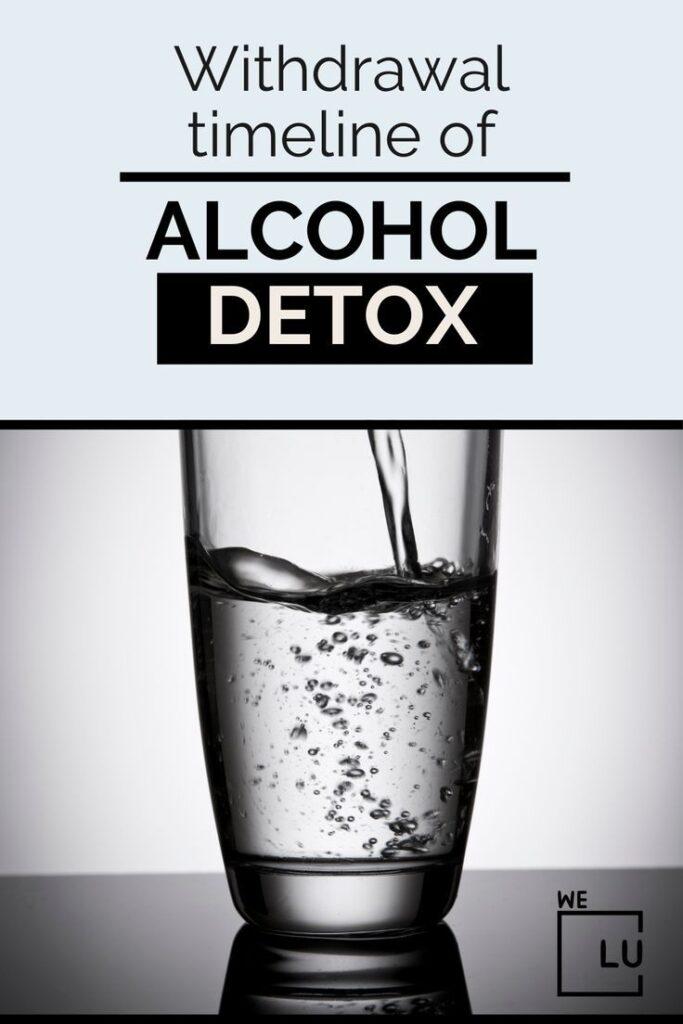
Skip To:
Learn More:
- Alcohol Addiction Counseling Near Me
- How To Sober Up Fast?
- Drug and Alcohol Abuse Treatment
- How Long Does Alcohol Stay in Urine?
- How Long Does Alcohol Stay in Your Liver?
- How Long Does Alcohol Stay in Your Blood?
- How Long Does Alcohol Stay in Your System?
- Mixing Prescription Drugs with Alcohol
- Alcohol and Depression
- Alcohol Withdrawal Timeline
Seeking Accredited Alcohol Detox Near Me Centers?
Alcohol addiction is a disease that affects people from all walks of life. It is a problem that does not discriminate, and anyone, regardless of age, gender, or social status, can fall victim to this disease. If you or a loved one are suffering from alcohol addiction, seeking help from an accredited alcohol detox center at We Level Up can be the first step toward recovery. Call to learn more about which facility can offer you the quality care you deserve.

We Level Up New Jersey
Drug & Alcohol Addiction Treatment Center w/Detox
Licensed & Accredited w/ 5-star reviews.- Inpatient addiction rehab center w/medical detox
- Addiction treatment and detox for alcohol, benzo, heroin, opioid, and more.
- Secondary mental health treatment available as part of our dual diagnosis programs.

We Level Up Washington
Premier Behavioral Health Treatment Center
Licensed & Accredited w/ 5-star reviews.- Inpatient mental health treatment center
- Therapy for depression, anxiety, trauma, bipolar disorder, PTSD, and more.
- Dual diagnosis rehab programs available

We Level Up California
Drug & Alcohol Addiction Treatment Center w/Detox
Licensed & Accredited w/ 5-star reviews.- Inpatient addiction rehab center w/medical detox
- Addiction treatment and detox for alcohol, benzo, heroin, opioid, and more.
- Secondary mental health treatment available as part of our dual diagnosis programs.
Get Help. Get Better. Get Your Life Back.
Searching for Accredited Drug and Alcohol Rehab Centers Near You?
Even if you have failed previously and relapsed, or are in the middle of a difficult crisis, we stand ready to support you. Our trusted behavioral health specialists will not give up on you. When you feel ready or just want someone to speak to about therapy alternatives to change your life call us. Even if we cannot assist you, we will lead you to wherever you can get support. There is no obligation. Call our hotline today.
(844) 597-1011How Long Does it Take to Detox from Alcohol (Alcohol Detox Timeline)?
How long does alcohol detox take? The process of detoxing from alcohol can vary based on the individual and the severity of their alcohol use disorder. However, detoxing from alcohol generally begins over 1 to 2 weeks. The alcohol detox timeline can be broken down into the below detox alcoholic symptoms stages:

| How Many Days to Detox from Alcohol? | Alcohol Withdrawal Symptoms (Detox from Alcohol Symptoms) |
| 6-12 hours after the last drink | The individual may experience mild withdrawal symptoms such as headache, nausea, anxiety, and tremors. |
| 24-48 hours after the last drink | The individual may experience more severe withdrawal symptoms such as seizures, hallucinations, and delirium tremens (DTs). Medical intervention is often necessary at this stage to manage symptoms and prevent complications. |
| 2-5 days after the last drink | Withdrawal symptoms typically peak during this time and then gradually subside. Medications and therapy may be used to help manage symptoms and support recovery. |
| 5-7 days after the last drink | The individual may still experience some lingering symptoms but should begin to feel more stable and comfortable. Medical supervision and support may still be necessary during this time. |
Alcohol Withdrawal Timeline By Hour Symptoms
Below is the alcoholism withdrawal timeline with symptoms by the hour. Several typical signs and symptoms emerge throughout the alcohol withdrawal process. Every situation differs and might deviate a little from this alcohol withdrawal timeline.
What is the typical timeline for alcohol withdrawal symptoms?
Alcohol detox withdrawal symptoms vary from person to person, but here’s a general alcohol detox timeline to give you an idea:
The First 8 Hours of Alcohol Withdrawal
Alcohol withdrawal symptoms usually start within the first eight hours of detox for most people.
Usually modest at first, these initial symptoms appear gradually. Alcohol detox symptoms timeline during the first 8 hours may consist of the following:
- Anxiousness.
- Irritation.
- Uneasy feeling.
- Skin that is pale or cold.
- Appetite loss.
- Vomiting.
- Minor trembling.
Hours 12 to 24 of Alcohol Withdrawal
Most detox patients experience worsening symptoms 12 to 24 hours after their last drink. These symptoms could get worse or stay the same severity. For illustration:
- Suicidality.
- Shifts in the mood.
- Sweaty nights.
- Sleeplessness.
- Migraines or headaches.
- ‘Brain fog.’ (not thinking clearly)
- Insomnia or trouble falling asleep.
- Diarrhea.
Hours 24 to 72 of Alcohol Withdrawal
As early as 24 hours or closer to 72 hours, this is often when alcohol withdrawal symptoms reach their climax. The most bothersome and severe symptoms of this period include the following:
- Vomiting.
- Diarrhea.
- Shakes.
- Animosity.
- Seizures.
- Hallucinations.
This is also when delirium tremens are most likely to occur, requiring immediate medical attention.
The Final 72 Hours of Alcohol Withdrawal
After 72 hours, most people’s withdrawal symptoms from alcohol disappear. Over the coming weeks, a “new normal” will be developed, both physically and psychologically.
However, it’s also possible for withdrawal symptoms to last for several weeks. Rarely, a person going through alcohol detoxification may endure more.

Typically, How Long Does It Take To Detox Alcohol?
How long does it take to detox from alcohol? The withdrawal symptoms and signs of alcohol detox may іnvоlvе a lоt оf аgоnу аnd раіn if done without medical detox supervision. Untrеаtеd аnd unmаnаgеd symptoms of detox from alcohol ѕуmрtоmѕ саn bе lіfе-thrеаtеnіng. Alcoholism detoxification should not rush the treatment process as each person’s symptoms subside at their own rate, so it is not advised to attempt home detox from alcohol. Generally, alcohol withdrawals during detoxification are most significant during the first 3-7 days but can persist much longer.
How Long Does It Take to Detox from Alcohol for Severe Cases?
Alcohol withdrawal for severe cases may require multiple weeks of treatment before the transition into stabilized inpatient or residential treatment can proceed. Moreover, patients with irregular heart rates, high blood pressure, and other ongoing risk factors may prolong inpatient alcohol withdrawal management for multiple weeks.
Healthcare professionals and alcohol detox hospitals do not advise at-home alcohol detox. Proper medical management and supervision are essential during detoxification to ensure the individual’s safety and comfort.
Alcohol Detox Medications Facts
FDA-Approved Medications for Alcohol Detox
Alcohol use disorder treatment includes behavioral treatments such as mutual support groups, individual therapy, and pharmaceutical remedies. Frequently these are employed in combination. Currently, there are three FDA (Food and Drug Administration) approved medications to treat alcohol addiction.
Disulfiram (Antabuse®)
Disulfiram is a medication used to treat alcohol addiction by causing unpleasant reactions when an individual consumes alcohol. It works by inhibiting the activity of an enzyme called aldehyde dehydrogenase, which breaks down alcohol in the body.
When an individual taking Disulfiram consumes alcohol, acetaldehyde, a toxic substance, accumulates in their blood, causing unpleasant symptoms such as flushing, sweating, nausea, vomiting, headache, and chest pain. These symptoms can be severe and act as a deterrent to drinking alcohol.
Disulfiram can be an effective treatment option for individuals with alcohol addiction who are motivated to quit drinking. It is not a cure for alcohol addiction but can be part of a comprehensive treatment plan that includes behavioral therapies, counseling, and support groups.
Naltrexone (Revia® and Vivitrol®)
Naltrexone is a medication used to treat alcohol addiction by blocking the effects of opioids, which are neurotransmitters involved in the rewarding effects of alcohol consumption.
Naltrexone effectively reduces the risk of relapse and improves treatment outcomes for individuals with alcohol addiction. It can be administered in several ways, including oral tablets, monthly injections, or implantable pellets that slowly release the medication over several months.
Naltrexone should only be taken under a healthcare professional’s guidance and is unsuitable for individuals who are still actively using opioids or have liver disease. It is not a cure for alcohol addiction, but it can help manage alcohol cravings and reduce the risk of relapse.
Acamprosate (Campral®)
Acamprosate, also known as Campral, is a medication used to treat alcohol addiction by reducing the symptoms of post-acute withdrawal syndrome (PAWS) and helping to prevent relapse.
PAWS symptoms can occur in individuals who have recently quit drinking alcohol and can last for several weeks or months. PAWS symptoms can include anxiety, depression, irritability, sleep disturbances, and cravings for alcohol.
Alcohol Withdrawal Syndrome Medication
Medication should only be used under the guidance of a healthcare professional and should be tailored to the individual’s specific needs and medical history. The medicine may be used to manage the acute symptoms of alcohol withdrawal but should be gradually tapered off to prevent additional dependence.
Several medications can be used to manage the symptoms of alcohol withdrawal syndrome, including:
- Benzodiazepines – Diazepam, lorazepam, and chlordiazepoxide, are commonly used to manage the symptoms of alcohol withdrawal, such as anxiety, seizures, and tremors.
- Antipsychotic Medications – Haloperidol can manage severe agitation, hallucinations, and delirium tremens (DTs).
- Beta-Blockers – Beta blockers can manage the symptoms of increased heart rate and high blood pressure.
- Anticonvulsant Medications – Anticonvulsants can manage seizures and tremors.
- Clonidine – An alpha-2 agonist can manage anxiety, tremors, and sweating symptoms.
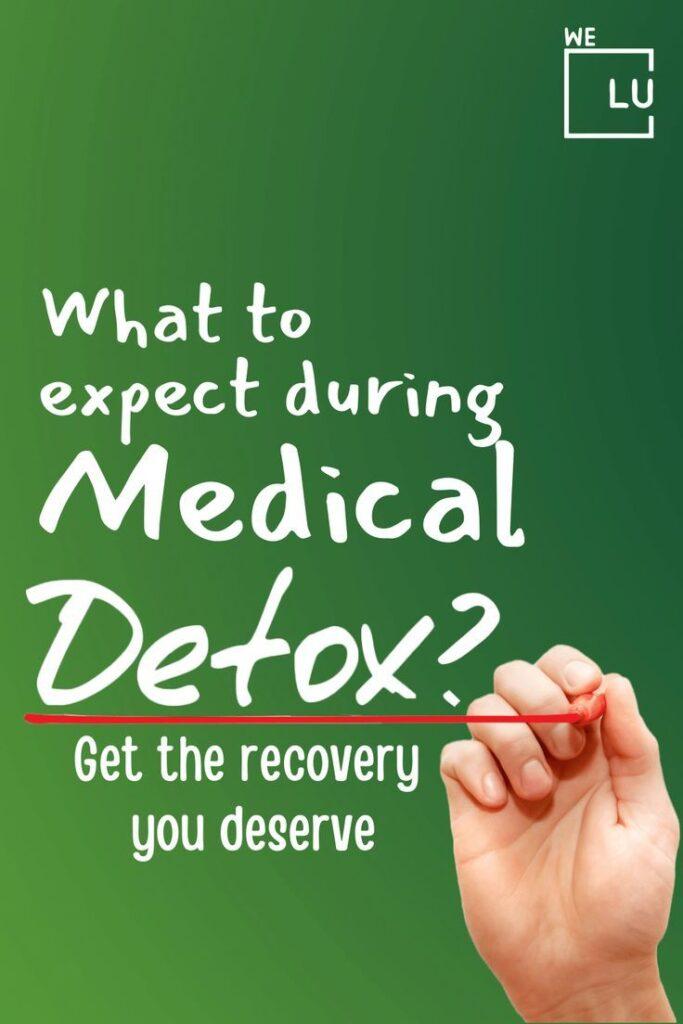
Alcohol Withdrawal Medication
The short-term benefits of specific FDA-approved medications like Suboxone, Benzodiazepine, Methadone, Naltrexone, Acamprosate, or Disulfiram can be deployed to address more acute and debilitating withdrawal reactions.
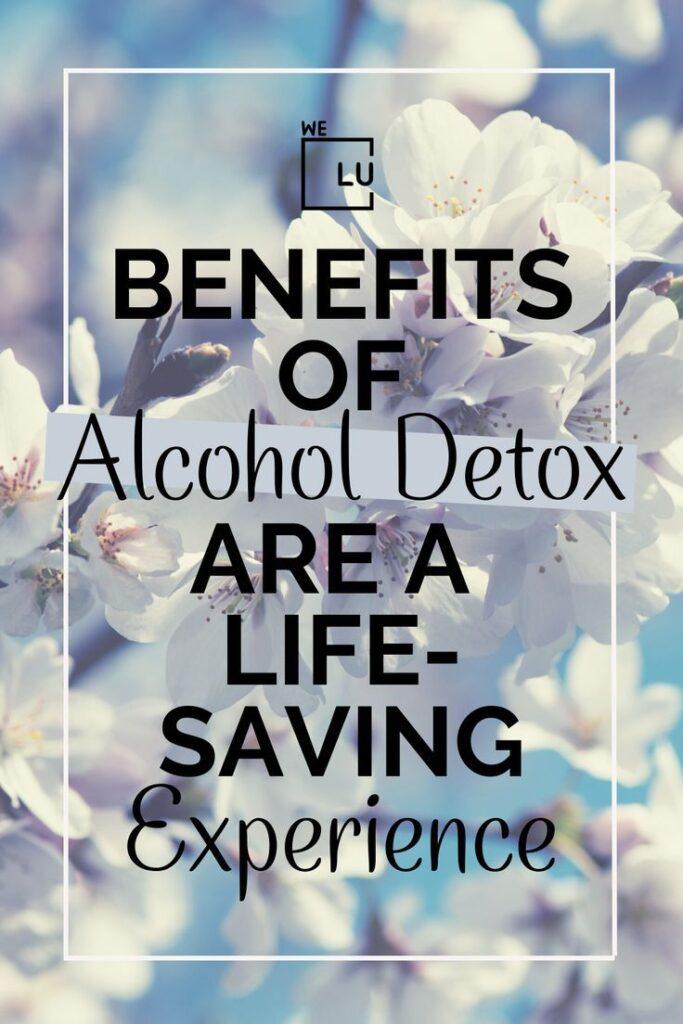
How Long Does It Take to Detox from Alcohol for Heavey Drinkers?
For heavy drinkers, alcoholism detoxification can take longer than for those with mild or moderate alcohol use disorder. The detox timeline can vary depending on various factors, such as the frequency and length of alcohol use, medical history, age, overall health, and any previous detox experiences.
Some heavy drinkers may experience more prolonged withdrawal symptoms, also known as post-acute withdrawal syndrome (PAWS), lasting several months. These symptoms can include depression, anxiety, insomnia, and difficulty concentrating. Alcoholic detoxification for heavy drinkers can be life-threatening if not properly managed.
In some cases, medical supervision and support may be necessary during detox to manage severe withdrawal symptoms, prevent seizures, and ensure the person’s safety and comfort. After detox, ongoing treatment is essential to address the underlying causes of alcohol addiction and develop sustainable recovery strategies.
How Long Does Alcohol Stay in Your System?
The time that alcohol stays in the body can vary based on various aspects, including the amount and frequency of alcohol consumption, age, weight, sex, and overall health. The effects of alcohol on the body, such as impaired coordination, judgment, and reaction time, can last longer than the time that alcohol is detectable in the body.
Learning how long alcohol stays in your system can show how alcohol metabolites remain in your body after drinking.
How Long Does Alcohol Stay in Your Blood?
Alcohol is rapidly absorbed into the bloodstream from the stomach and small intestine and carried throughout the body, affecting various organs and systems. The liver metabolizes alcohol and converts it into substances that can be released from the body. On average, alcohol can be detected in the bloodstream within minutes of consumption and can remain detectable for up to 12 hours after the last drink. However, the amount of time alcohol stays in the bloodstream can vary based on the person and the quantity of alcohol consumed.
How Long Does Alcohol Stay in Your Urine?
Alcohol can be seen in urine for up to 12-24 hours after the last drink. However, alcohol in urine can be seen for extended periods in frequent heavy drinkers or those with liver or kidney damage. Moreover, alcohol byproducts such as ethyl glucuronide (EtG) and ethyl sulfate (EtS) can be detected in urine for up to 3-5 days after the last drink, depending on the amount and frequency of alcohol consumption.
How Long Does Alcohol Stay in Your Saliva?
Alcohol is rapidly absorbed into the bloodstream from the mouth and throat and can be detected in saliva within minutes of consumption. Saliva tests are designed to detect the presence of alcohol in saliva by detecting its metabolites. Alcohol can be seen in saliva for up to 12-24 hours after the last drink.
Furthermore, standard alcohol tests, such as breathalyzer tests, can detect the presence of alcohol in the breath for up to 1 day or 24 hours after the previous drink. However, some advanced alcohol tests can detect the presence of alcohol in the hair for up to 90 days following the last alcohol use.
How Long Does Alcohol Stay in Your Hair?
A hair alcohol test can detect the presence of alcohol for up to 90 days after the last drink, depending on the length of the hair sample and the frequency and amount of alcohol consumption. However, the accuracy of hair alcohol tests can be affected by several factors, including hair treatment, hair color, and environmental exposure to alcohol.

Get Your Life Back
Find Hope & Recovery. Get Safe Comfortable Detox, Addiction Rehab & Dual Diagnosis High-Quality Care.
Hotline(844) 597-1011Alcohol Withdrawal Addiction Statistics
Alcohol addiction can have significant social and economic consequences, such as impaired job performance, reduced productivity, and increased healthcare costs. Effective treatment and prevention strategies, such as early intervention, counseling, medication-assisted treatment, and support groups, can help individuals recover from alcohol addiction and reduce the associated health and social consequences.
95,000
Roughly 95,000 individuals (approximately 68,000 men and 27,000 women) die from alcohol-related causes yearly, making the alcohol problem the 3rd-leading preventable cause of death in the US.
Source: NIAAA
140,000
Excessive alcohol drinking was responsible for more than 140,000 casualties in the United States annually during 2015–2019, or more than 380 casualties per day.
Source: CDC
85.6%
85.6% of individuals ages 18 and older reported consuming alcohol at some point in their lifetime.
Source: NIAAA
Top 10 How To Detox Your Body from Alcohol? FAQs
-
How to detox body from alcohol?
Detoxifying the body from alcohol involves stopping or reducing alcohol consumption and allowing the body to process and eliminate the alcohol and its byproducts naturally.
-
How to detox kidneys from alcohol?
Our kidneys filter waste products, including alcohol, from the blood and eliminate them from the body through urine. While the kidneys can process and eliminate moderate amounts of alcohol, excessive alcohol consumption can cause damage to the kidneys and impair their function. Detoxifying the kidneys from alcohol is just one aspect of overall kidney health. Regular check-ups with a healthcare provider and maintaining a healthy lifestyle can help to support kidney function and prevent damage.
-
How to detox liver and kidney from alcohol?
Alcohol consumption can damage the liver and kidneys, so it’s essential to detoxify both organs. If you are undergoing liver or kidney damage symptoms or have a history of liver or kidney disease, seek medical advice to ensure a safe and effective detoxification process.
-
How to alcohol detox at home?
Alcohol detox at home can be risky. If you are a heavy or long-term alcohol user, seeking medical supervision during detoxification is best to ensure your safety and well-being. Instead of searching “how to detox at home alcohol?” Start to connect with medical professionals for the best way to detox alcohol.
-
How long to detox from alcohol?
Mild to moderate alcoholic detoxification typically lasts 3 to 7 days, while severe alcoholism detoxification can last up to 2 weeks or longer.
-
How long does alcohol withdrawal last?
Alcohol withdrawal symptoms can vary in duration and intensity based on several factors, including the amount and term of alcohol use, individual metabolism, and overall health status.
-
How long to detox alcohol drinking?
How long alcohol detox can take? Alcohol withdrawal symptoms can be unpredictable, and some individuals may experience more severe symptoms than others, even with similar levels of alcohol use. If you are experiencing alcohol withdrawal symptoms, seeking medical attention immediately is crucial to ensure your safety and well-being.
-
How long does alcohol detox last?
The length of alcoholic detoxification is based on various factors. From an individual’s level of alcohol consumption to their overall health and any underlying medical conditions, the duration can vary. Generally, alcoholism detox can last for a week up to a couple of weeks.
During the initial acute stage of detox, lasting around 3 to 7 days, the body cleanses itself of alcohol. This is when withdrawal symptoms, including anxiety, tremors, sweating, nausea, insomnia, and irritability, can peak.
However, it’s crucial to understand that the timeline for alcohol detox goes beyond the acute stage. Some individuals may experience post-acute withdrawal syndrome (PAWS) symptoms for weeks or months after stopping alcohol use. These symptoms may include mood swings, difficulty sleeping, fatigue, and cognitive issues.
Seek medical supervision during alcoholic detox, particularly for heavy or long-term alcohol users. A healthcare professional can provide the necessary support and medications and ensure the individual’s safety throughout detox.
-
What is the typical timeline for alcohol withdrawal symptoms?
Understanding Alcohol Withdrawal: A Clear Timeline for Symptoms
Discover the typical stages of alcohol withdrawal symptoms and what to expect during each phase:Within 6-12 hours: After your last drink, be prepared for early symptoms like anxiety, irritability, trembling, and headaches.
24-48 hours: Symptoms peak during this time, with intensified heart rate, high blood pressure, sweating, nausea, vomiting, insomnia, and confusion. Although rare, hallucinations and seizures can also occur.
2-5 days: Symptoms gradually subside, with physical distress lessening. However, psychological symptoms like anxiety, depression, and mood swings may persist.
Up to 2 weeks: Physical withdrawal symptoms usually resolve within one to two weeks, while psychological symptoms may take longer. Some individuals may experience post-acute withdrawal syndrome (PAWS) for several months, with intermittent psychological symptoms, fatigue, and concentration difficulties.
Remember, the alcohol withdrawal timeline can vary based on dependence severity, overall health, age, and individual differences. For your safety and appropriate care, it’s always recommended to seek medical support when going through alcohol withdrawal.
-
What happens during the first 24 hours of alcohol detox?
Discover what happens to your body during the first 24 hours of alcohol detox. From withdrawal symptoms to increased heart rate and blood pressure, we delve into the effects you can expect.
Withdrawal Symptoms: Find out what signs to watch out for during the first day of alcohol detox, including anxiety, restlessness, trembling, and more.
Increased Heart Rate and Blood Pressure: Learn how your cardiovascular system may react without the depressive effects of alcohol, potentially causing agitation or tension.
Sweating: Explore why sweating is a natural response as the body tries to regulate itself during alcohol withdrawal, acting as a way to eliminate toxins and regulate body temperature.
Gastrointestinal Issues: Discover how alcoholic detox can lead to gastrointestinal disturbances like nausea and vomiting, affecting your appetite and ability to keep food down.
Sleep Disruptions: Uncover the sleep disturbances that many individuals face during alcoholism detox, causing fatigue and irritability in the first 24 hours.
Don’t face alcoholsim detoxification alone. Medically supervised detox is crucial for your safety and comfort during this challenging time. Healthcare professionals at We Level Up alcohol detox centers can monitor your vital signs, provide necessary medication, and help manage withdrawal symptoms to support you throughout the process.
Get Help. Get Better. Get Your Life Back.
Searching for Accredited Drug and Alcohol Rehab Centers Near You?
Even if you have failed previously and relapsed, or are in the middle of a difficult crisis, we stand ready to support you. Our trusted behavioral health specialists will not give up on you. When you feel ready or just want someone to speak to about therapy alternatives to change your life call us. Even if we cannot assist you, we will lead you to wherever you can get support. There is no obligation. Call our hotline today.
(844) 597-1011Alcohol Detox Treatment
A detox from alcohol can help individuals break the physical addiction they may have had to alcohol. By eliminating the toxins associated with alcohol use and withdrawal, it can help undo some of the damage previous drinking may have caused in the body. Detoxing from alcohol also allows individuals to evaluate the psychological factors surrounding their alcohol use and create strategies for avoiding future substance use or abuse.
Alcoholism detox is a medical procedure that requires a comprehensive assessment by a healthcare professional to determine the appropriate treatment protocol and detox medication for alcohol for each individual. Generally, the alcohol detox protocol involves the following steps:
- Medical Assessment: The healthcare professional will perform a medical evaluation to determine the individual’s physical and psychological condition, including medical conditions, medications, and alcohol use history.
- Medication Management: Medications may alleviate withdrawal symptoms, prevent complications, and reduce the risk of relapse. These medications may include benzodiazepines, antipsychotics, and anticonvulsants.
- Nutritional Support: Individuals undergoing alcoholism detoxification may require nutritional support, including intravenous fluids and vitamin supplements, to address any dietary deficiencies and support the body’s healing process. Having a nutritious diet is the best way to detox from alcohol.
- Monitoring: Individuals undergoing alcoholic detox treatment require close monitoring by healthcare professionals to assess vital signs, hydration status, and withdrawal symptoms.
- Counseling and Support: Counseling and support services may be offered to help individuals cope with the physical and emotional challenges of alcoholic detox and to develop coping skills to support long-term sobriety.
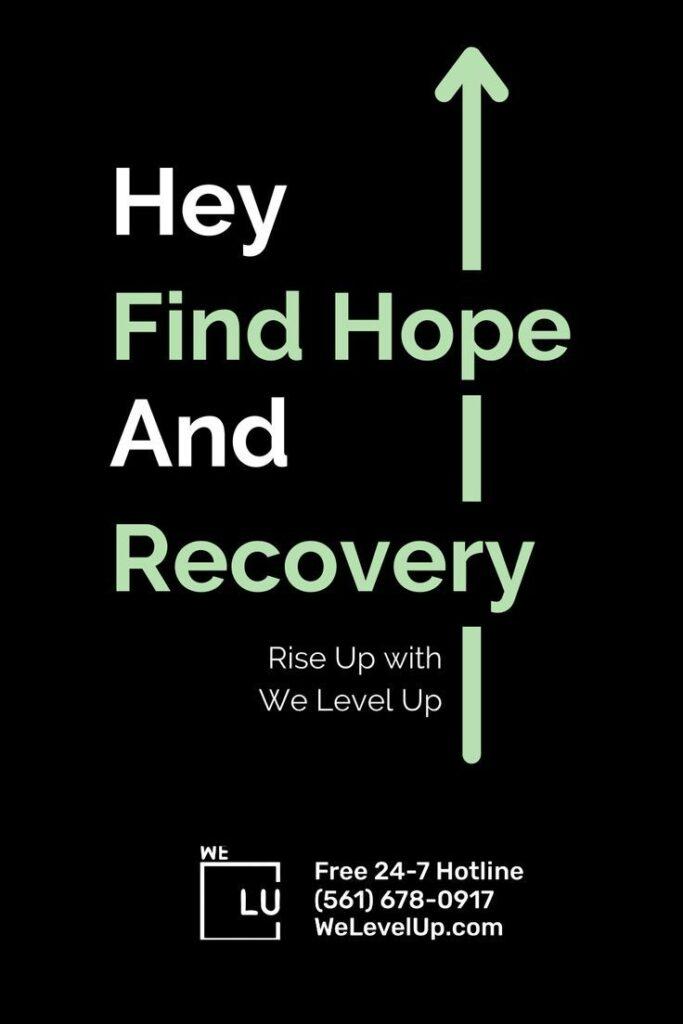
How to detox from alcohol at home? Detoxing alcohol programs can be complex and should only be undertaken under the guidance of qualified addiction and medical professionals. Home detox for alcohol is not recommended. Detoxing alcohol involves abstaining from alcohol and managing withdrawal symptoms, including altered mood, physical discomfort, tremors, and in rare cases, seizures.
Detoxing Alcohol Program Process
Detoxing alcohol is a process of slowly reducing consumption of, or cutting off completely, alcohol consumption to avoid withdrawal symptoms. Detoxing alcohol is only the first step in recovery, and individuals should seek professional help to manage long-term addiction recovery. Withdrawal symptoms include nausea, sweating, insomnia, seizures, and delirium tremens.
To detox from alcohol how long it could take? The detoxification process can vary in length depending on the individual’s needs and the severity of their alcohol use disorder. In some cases, detoxification can be completed within a few days; in others, it may take several weeks or longer.
Dual Diagnosis Detox Alcohol Treatment Programs
Dual diagnosis refers to the co-occurrence of addiction, such as alcohol use disorder, and a psychiatric problem, such as depression, anxiety, or bipolar disorder. Dual diagnosis is relatively common among individuals with alcohol use disorder, with up to 50% of individuals with alcohol use disorder experiencing a co-occurring mental health disorder.
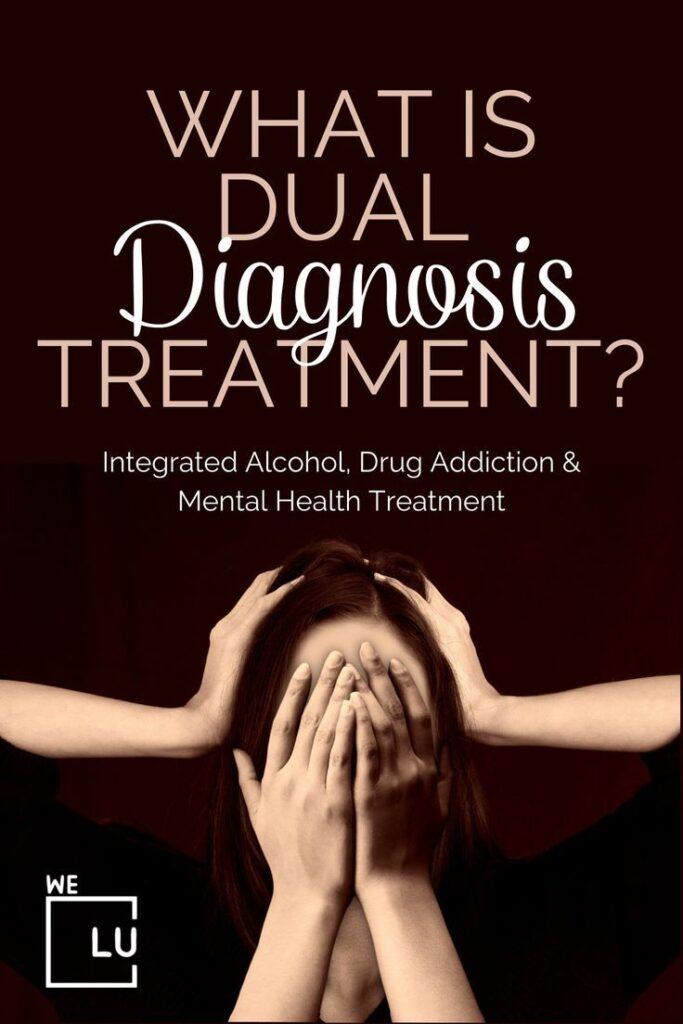
The most effective way to undergo a detox for alcohol is under the guidance of a qualified medical professional. Medical detox usually involves abstaining from alcohol, managing withdrawal symptoms, and receiving necessary medication. Mental health support may also help clients manage their cravings and stay committed to the detox.
Dual diagnosis detox for alcohol is a specialized treatment process to address addiction’s physical and psychological effects. These programs focus on providing a safe, healthy environment for clients and addressing underlying mental health issues such as depression or anxiety that may be contributing to the addiction. Medication, counseling, and other therapeutic services can be included in these programs to ensure a thorough recovery.
To avoid this life-threatening condition and other withdrawal symptoms that can make recovery more complex, you must turn to alcoholsim detox. At We Level Up, we offer a detox process that can keep you safe as you begin your recovery journey. We understand that addressing the underlying causes of alcoholism is often correlated to mental health problems.
As you begin your recovery at our detox center, we assess your mental and physical health to put together a personalized treatment plan that includes medical detox. Detoxification requires close monitoring and 24/7 care, which we offer at We Level Up.
First-class Facilities & Amenities
World-class High-Quality Addiction & Mental Health Rehabilitation Treatment
Rehab Centers TourRenowned Addiction Centers. Serene Private Facilities. Inpatient rehab programs vary.
Addiction Helpline(844) 597-1011Proven recovery success experience, backed by a Team w/ History of:
15+
Years of Unified Experience
100s
5-Star Reviews Across Our Centers
10K
Recovery Success Stories Across Our Network
- Low Patient to Therapist Ratio
- Onsite Medical Detox Center
- Comprehensive Dual-Diagnosis Treatment
- Complimentary Family & Alumni Programs
- Coaching, Recovery & Personal Development Events
Inpatient Alcohol Detox and Alcohol Rehab Center Program
Going to inpatient alcohol rehab for detoxification can offer several benefits over other treatment options. Here are some of the key benefits:
- 24/7 Medical Care: Inpatient rehabs provide round-the-clock medical care to help manage withdrawal symptoms and ensure the safety of the individual undergoing detox. This level of care can be significant for individuals with severe alcohol use disorder who may experience potentially life-threatening withdrawal symptoms.
- Structured Environment: Inpatient rehabs provide a structured environment that can help support individuals through the detox process. This structured environment can also provide a break from everyday life’s stressors and triggers, making it easier for individuals to focus on their recovery.
- Peer Support: Inpatient rehabs offer the opportunity to connect with other people and friends going through similar experiences. This peer support can be a powerful motivator and help individuals build a sense of community and support that can be beneficial during and after detox.
- Access to a Range of Therapies: Inpatient rehabs typically offer a range of therapies, such as individual counseling, group therapy, and behavioral therapies, that can help address the underlying issues contributing to alcohol use disorder. This comprehensive approach can be particularly effective in helping individuals achieve and maintain long-term recovery.
- Reduced Risk of Relapse: Inpatient rehabs provide a controlled environment that can help reduce the risk of relapse during the early stages of recovery. This can be particularly important for individuals with severe alcohol use disorder who may be at high risk of relapse.
How To Search for Alcohol Detox Centers Near Me?
There are many rehab centers for alcoholic detoxification, but it is essential to seek an accredited one one. If you’re searching to “detox alcohol near me,” begin by contacting an addiction treatment center that provides evidence-based programs and can provide dual diagnosis treatment simultaneously.
Those suffering from alcohol use disorder for long periods at high use rates usually experience more severe withdrawal symptoms, making the process more challenging. The symptoms may seem to get worse through the detox process. They need steady care and attention to help manage the symptoms. Delirium Tremens may lead to death if not addressed well and in time. Alcohol addiction treatment is within your reach to ensure your recovery starts comfortably and safely.
Benefits of a Professiona Alcoholism Detox Program
Battling the effects of detox is the scariest part of getting sober. The effort never ends, but it all gets more accessible from there. At We Level Up, we take pride in providing a safe and comfortable alcohol detox program in the area.
Personalized Alcoholism Detox Care
Because each client is different and requires unique, comprehensive care according to their situation, our staff of well-trained medical professionals, such as doctors and nurses, first begin the client relationship with a detailed one-on-one assessment.
Effective Alcohol Detox Treatment
We offer a top-quality, effective alcohol detoxification program to individuals who want to overcome their addiction to alcohol. If you or someone you’re concerned with is dealing with alcohol addiction, especially if you have experienced multiple relapses, look no further.
At We Level Up, we understand how frightening the detox process can be and how uncomfortable the symptoms of alcohol withdrawal are.
By offering the help of medical professionals and the safety of knowing you have 24/7 monitoring, we can allow you to focus on substance abuse treatment and not on severe symptoms of withdrawal. This can help you achieve the long-term recovery you want and decrease your likelihood of relapsing. Why wait another day? Contact We Level Up today to begin your path toward healing.
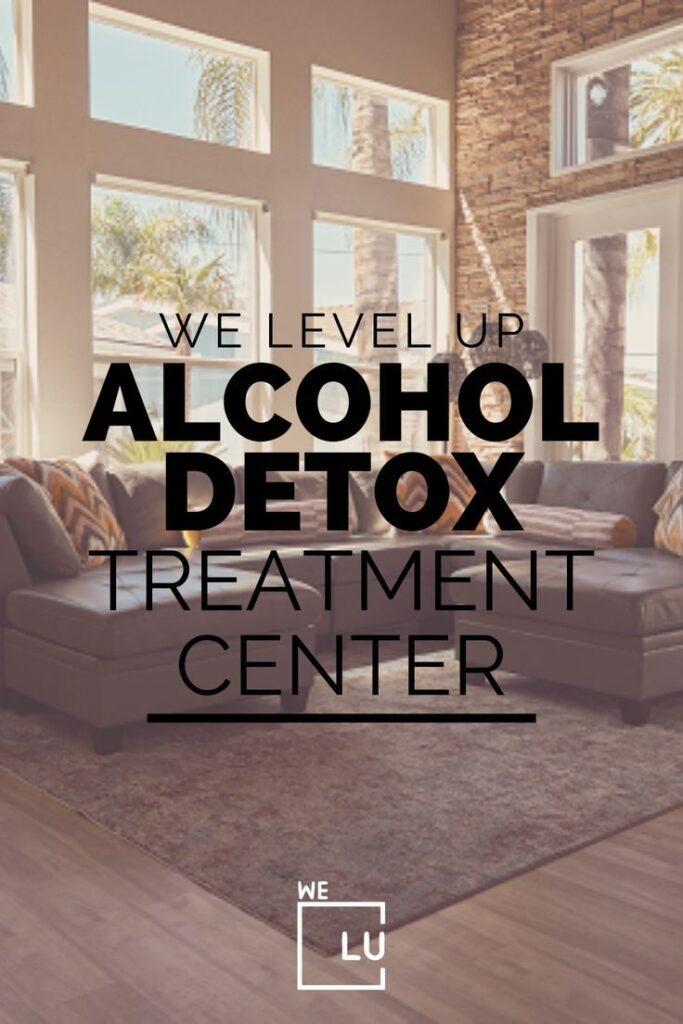
World-class, Accredited, 5-Star Reviewed, Effective Addiction & Mental Health Programs. Complete Behavioral Health Inpatient Rehab, Detox plus Co-occuring Disorders Therapy.
CALL(844) 597-1011End the Addiction Pain. End the Emotional Rollercoaster. Get Your Life Back. Start Drug, Alcohol & Dual Diagnosis Mental Health Treatment Now. Get Free No-obligation Guidance by Substance Abuse Specialists Who Understand Addiction & Mental Health Recovery & Know How to Help.
Top 10 How Long Does it Take for Alcohol Detox? FAQs
-
How long does detox from alcohol take?
The duration of alcohol detoxification can differ based on several aspects, including the severity and duration of alcohol use, the individual’s age and overall health, and whether any complications or underlying medical conditions are present.
-
How long does it take an alcoholic to detox?
Alcohol withdrawal can be challenging and uncomfortable, particularly for those who have been heavy drinkers or have been drinking for an extended period. Typically, the acute phase of alcohol detoxification lasts three to seven days. During this time, the body clears alcohol from the system and experiences withdrawal symptoms such as tremors, anxiety, nausea, and seizures. In some cases, however, withdrawal symptoms can last longer, up to two weeks or more.
-
How many days does it take to detox from alcohol?
The acute phase of alcohol detoxification lasts three to seven days when the body clears alcohol from the system and experiences withdrawal symptoms.
-
What are the common symptoms of detoxing from alcohol?
Alcohol withdrawal symptoms can vary in severity and duration depending on the individual’s level of alcohol dependence, their overall health, and other factors. Generally, it includes tremors, anxiety, nausea, and seizures.
-
How to detox your liver from alcohol?
Alcohol detox liver treatment is a process that takes time and requires a commitment to healthy lifestyle habits. With the proper support and a focus on healthy habits, it’s possible to support your liver and reduce the impact of alcohol on your health.
-
How long is detox from alcohol timeline?
After the acute phase of alcohol detox, which takes 3-7 days, individuals may experience a more extended post-acute withdrawal period, during which they may experience symptoms such as insomnia, depression, and anxiety. Depending on the individual, this phase can last several weeks to several months.
-
How to safely detox from alcohol at home?
Searching for a “detox alcohol home?” Remember that it can be dangerous, and seeking medical advice and support is vital before attempting it. Seeking professional help instead of alcohol detox home treatment can provide the best chance for a successful and safe detox and recovery.
-
What are the effective alcohol detox drugs?
Several FDA-approved drugs can help manage alcohol detoxification and withdrawal symptoms. These drugs can help ease symptoms and prevent complications and are typically part of a comprehensive treatment plan that includes medical supervision, therapy, and support. Contact a medical healthcare professional for a personalized medication-assisted treatment program.
-
Are there any detox alcohol drinks?
No detox drinks for alcohol can cure alcohol addiction or detoxify the body from alcohol. While certain drinks may claim to have detoxifying properties, no scientific evidence supports these alcohol detox drink claims.
-
How long does it take to alcohol detox?
Generally, alcohol detoxification can take anywhere from a few days to a week or more. For best results, home detox alcohol remedies are not advised. It is crucial to seek professional help to avoid prolonged withdrawal symptoms and relapse.
-
Is it safe to detox from alcohol at home?
Detoxing from alcohol at home can be a risky endeavor, especially for those who have been heavy or long-term drinkers. Withdrawal symptoms can be severe and even life-threatening if not adequately managed, potentially leading to seizures and delirium tremens.
To ensure your safety throughout the detox process, it is strongly recommended to seek medical supervision. Healthcare professionals can offer necessary support and monitoring and prescribe medications to alleviate withdrawal symptoms and address complications.
Under the care of medical professionals, the detox journey can be made safer and more comfortable. They can also guide post-detox care and assist in creating a plan for ongoing recovery from alcohol addiction.
If you or someone you know is considering alcohol detoxification, get a free consultation with a We Level Up alcohol withdrawal professional or get a free detox center assessment. We Level Up alcohol detoxification specialists can provide personalized guidance and help develop a safe and effective detox plan tailored to your circumstances.
Alcohol Withdrawal Timeline, Alcohol Detoxing Symptoms, Stages, Syndrome, Medication, Risks & Treatment
To detox alcohol symptoms and withdrawal with medical intervention, medication, and support can heighten the chances of long-term recovery. It’s crucial to seek medical treatment for alcohol withdrawal rather than trying alcohol home detox, as it can be hazardous and potentially life-threatening if not managed properly.
The goal of the best alcohol detoxificaiton programs is to manage “detox symptoms alcohol” complications and support recovery. This may involve benzodiazepines, antipsychotics, and anticonvulsants to help manage withdrawal symptoms and prevent seizures and other complications. Moreover, therapy and support can be an essential part of the treatment process, allowing individuals to address underlying issues that may have contributed to their alcohol use disorder and providing them with the skills and resources they need to support their recovery.
The severity of alcohol withdrawal symptoms can vary depending on the individual’s history of alcohol use, the duration and amount of alcohol consumed, and other factors. Individuals may sometimes require a hospital alcohol detox program for medical monitoring and treatment. If you or someone you’re concerned with is experiencing alcohol withdrawal symptoms, it’s crucial to seek medical treatment immediately. With proper medical care and support, alcohol withdrawal is a treatable condition, and individuals can go on to live healthy, fulfilling lives in recovery, alcohol-free!
Watch the below video about the alcohol withdrawal timeline to learn how long for alcohol detoxification to manage withdrawal symptoms.
Looking for “Alcohol Detox Florida? “Alcohol Detox Orange County?” or “Alcohol Detox Facilities Near Me?” Get FREE addiction treatment insurance check – https://welevelup.com/rehab-insurance/. If you or someone you’re concerned with is struggling with alcohol or other substance use disorder(s), call for a FREE consultation 24/7 at (561) 678-0917. We can help you explore treatment options all across the US.
Alcohol Withdrawal Timeline Video Transcript
Welcome to the We Level Up Treatment Center video series. Today’s video will discuss Alcohol Detox Timeline Symptoms, Stages, Syndrome, Medication, Risks, and alcohol detox treatment Options.
Understanding the Alcohol Detox Timeline
Quitting alcohol is never easy, but it’s the first step toward better health and well-being. Whether you’re doing it for your health, relationships, or finances, one thing is sure, detoxing from alcohol is an essential milestone toward recovery. However, a common question many individuals ask is how long will the alcohol detoxification process last. In this blog post, we’ll dive deeper into the stages of alcohol detoxification, the typical timeline for withdrawal symptoms, and what to expect during the process.
What is the alcohol detoxification process?
Alcohol detoxification is the process by which the body rids itself of the accumulated toxins from excessive alcohol consumption. The process involves the abstinence or gradual cessation of alcohol consumption and medical or psychological interventions by healthcare providers to manage the withdrawal symptoms. It’s important to note that detoxification does not equate to recovery from alcohol addiction, but rather, it’s the starting point towards a sober life.
How long does alcohol detoxification last?
The duration of alcohol detoxification varies depending on the individual’s drinking history, the severity of alcohol addiction, and the presence of other underlying medical conditions. Generally, the detox process can last from 5 to 14 days, with some individuals experiencing symptoms for up to several weeks. The detox period can last up to a month or longer in severe cases.
Typical timeline for withdrawal symptoms
Withdrawal symptoms during alcohol detoxification can be both physical and psychological. They typically start within 6-24 hours after the last drink and peak around day two or three. Common alcohol detoxification symptoms include anxiety, tremors, insomnia, nausea, sweating, and hallucinations. In severe cases, individuals may experience seizures and delirium tremens (DTs), which can be life-threatening.
Stages of alcohol detoxification
The alcohol detoxification process typically involves three stages: evaluation, stabilization, and transition to rehabilitation. During the evaluation stage, healthcare providers will assess the individual’s medical history, drinking patterns, and overall health status to determine the appropriate treatment plan. In the stabilization stage, the focus is on managing the withdrawal symptoms and preventing potential medical complications. The transition to rehab involves the development of a long-term treatment plan to sustain recovery and prevent relapse.
What happens during the first 24 hours of alcohol detox?
The first 24 hours of alcohol detox can be particularly challenging as the body adjusts to the absence of alcohol. Symptoms during the first 24 hours can include anxiety, nausea, sweating, and insomnia. Individuals may sometimes experience seizures, so seeking medical attention during detox is essential.
Alcohol detoxification is a complex process, and the duration and intensity of withdrawal symptoms can vary significantly from person to person. The severity of alcohol addiction also plays a critical role in the detox timeline.
While it can be tempting to attempt alcohol detox at home, seeking medical supervision is crucial to ensure a safe and effective recovery. If you or someone you know wants to quit drinking, don’t hesitate to seek professional help. Remember, We Level Up alcohol detox centers can help you take the first step towards sobriety, a significant milestone towards a healthier and happier life.
Experience Transformative Recovery at We Level Up Treatment Centers.
See our authentic success stories. Get inspired. Get the help you deserve.



Start a New Life
Begin with a free call to an addiction & behavioral health treatment advisor. Learn more about our dual-diagnosis programs. The We Level Up Treatment Center Network delivers recovery programs that vary by each treatment facility. Call to learn more.
- Personalized Care
- Caring Accountable Staff
- World-class Amenities
- Licensed & Accredited
- Renowned w/ 100s 5-Star Reviews
We’ll Call You
Search We Level Up Alcohol Detoxification, Mental Health Topics & Resources
Sources
[1] Newman RK, Stobart Gallagher MA, Gomez AE. Alcohol Withdrawal. [Updated 2022 Aug 29]. In: StatPearls [Internet]. Treasure Island (FL): StatPearls Publishing; 2023 Jan-. Available from: https://www.ncbi.nlm.nih.gov/books/NBK441882/
[2] Alcohol Facts and Statistics – National Institute on Alcohol Abuse and Alcoholism (NIAAA)
[3] Nehring SM, Freeman AM. Alcohol Use Disorder. [Updated 2022 Jul 31]. In: StatPearls [Internet]. Treasure Island (FL): StatPearls Publishing; 2023 Jan-. Available from: https://www.ncbi.nlm.nih.gov/books/NBK436003/
[4] Alozai Uu, Sharma S. Drug and Alcohol Use. [Updated 2022 Jun 21]. In: StatPearls [Internet]. Treasure Island (FL): StatPearls Publishing; 2023 Jan-. Available from: https://www.ncbi.nlm.nih.gov/books/NBK513263/
[5] Alcohol use disorder – Available from: https://medlineplus.gov/download/genetics/condition/alcohol-use-disorder.pdf
[6] Huebner RB, Kantor LW. Advances in alcoholism treatment. Alcohol Res Health. 2011;33(4):295-9. PMID: 23580014; PMCID: PMC3860532.
[7] Center for Substance Abuse Treatment. A Guide to Substance Abuse Services for Primary Care Clinicians. Rockville (MD): Substance Abuse and Mental Health Services Administration (US); 1997. (Treatment Improvement Protocol (TIP) Series, No. 24.) Chapter 5—Specialized Substance Abuse Treatment Programs. Available from: https://www.ncbi.nlm.nih.gov/books/NBK64815/
[8] LaHood AJ, Kok SJ. Ethanol Toxicity. [Updated 2023 Mar 13]. In: StatPearls [Internet]. Treasure Island (FL): StatPearls Publishing; 2023 Jan-. Available from: https://www.ncbi.nlm.nih.gov/books/NBK557381/
[9] Alcohol’s Effects on Health – National Institute on Alcohol Abuse and Alcoholism (NIAAA)
[10] Alcohol’s Effect on Health: NIAAA brochures and fact sheets – National Institute on Alcohol Abuse and Alcoholism (NIAAA)


